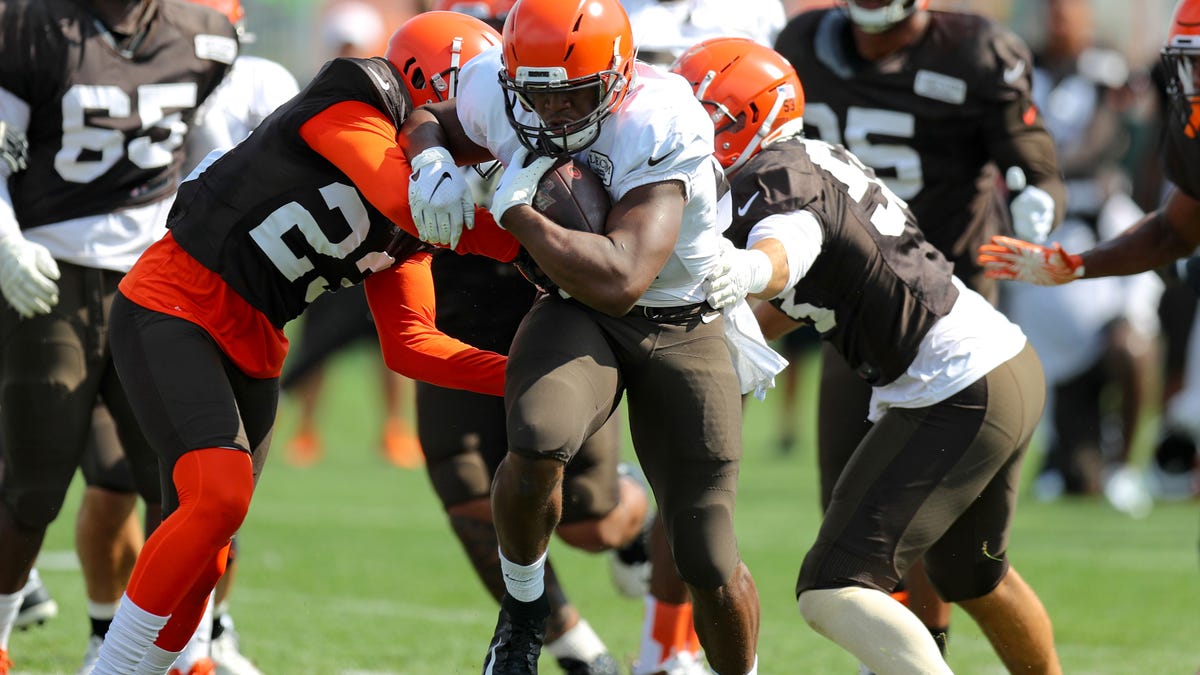Fox News Flash top headlines for August 13
Fox News Flash top headlines for August 13 are here. Check out what's clicking on Foxnews.com
Routine, smaller head hits could be damaging football players' brains even when they don't cause concussions, according to a new study.
A team led by University of Rochester researchers recruited football players during three seasons to examine head impact and brain health. Each player wore an accelerometer in his helmet to capture the forces at play during practices and games during the season.
The participants underwent brain scans at the beginning and end of each season. In addition, a fractional anisotropy allowed researchers to estimate how well neural signals were being carried by white matter brain tissue.
SCARY DEEPFAKE VIDEO SHOWS BILL HADER MORPHING INTO TOM CRUISE

Cleveland Browns running back Nick Chubb (24) runs the football during drills during the Cleveland Browns Training Camp on August 12, 2019. (Getty Images)
SANDERS BLASTS BEZOS-OWNED WASHINGTON POST OVER BIAS IN ECHO OF TRUMP
According to the study, 38 players took a total of 19,128 hits (head impacts), with 59 percent sustained in practice and 38 percent sustained in competition.
The study found that the players had lower measures of fractional anisotropy in their right midbrains, which is a part of the brain stem. Those declines were linked to the number of hits that twisted heads, as opposed to direct head-on hits, according to the study's abstract.
"These findings mean that noninvasive structural MRI of the midbrain is a succinct index of both clinically silent white matter injury as well as frank concussion," the authors write in the abstract.
CLICK HERE FOR THE FOX NEWS APP
The study was published in the journal Science Advances.









































